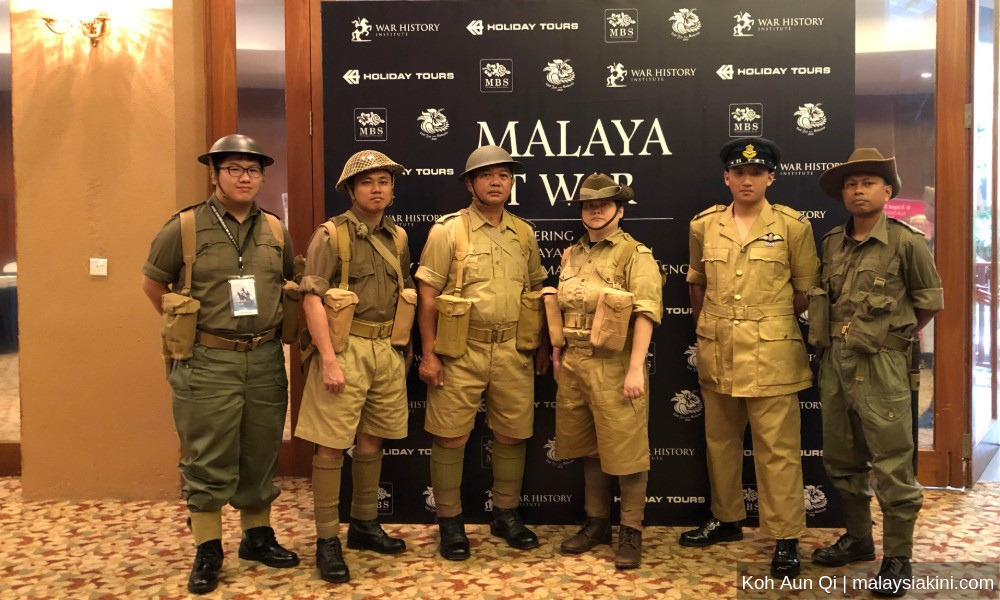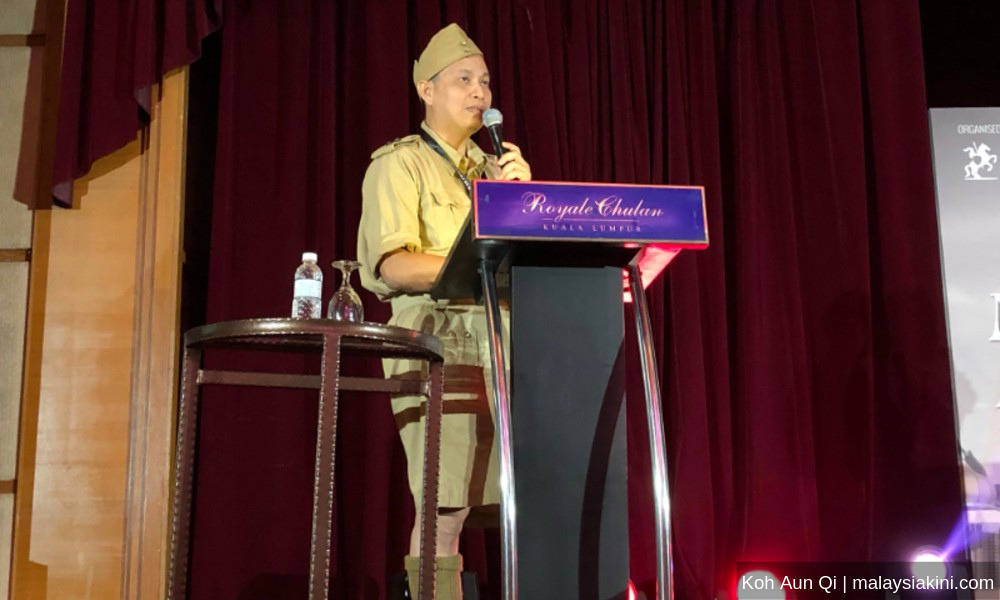
A group of historians and tour guides have called for local interest in military history tourism to be developed, along with better maintenance of war relics and sites.
This was said at a panel in Kuala Lumpur yesterday discussing the preservation of war historical sites and the promotion of military history tourism in Malaysia.
One panellist, battlefield guide Zafrani Arifin said that such tourism could help highlight the importance of Malaysia in global wars such as World War II.
“Why did the Japanese land in Kota Bharu? That means the war in the Pacific started here, 70 minutes before Pearl Harbour.
“Essentially, the war was in Europe and Africa, but once the Japanese were involved, it started a world war. So our history is important. We should highlight this,” he said.
Another battlefield guide, George Yong, noted that while he had shown around foreign tourists interested in visiting sites related to Malaysia’s war history, locals did not seem to be as interested in the subject.
“Locals are not so keen on World War II history,” he said.
He added that such disinterest was especially apparent with young people, who were content to use the Internet to look up a place instead of visiting it.
Low levels of local interest in military history tourism could also be due to Malaysians being “a superstitious lot”, Henry Ong explained.
Ong, who is head of business development for Holiday Tours & Travel, said: “When you talk about military tourism, it’s about visiting war graves, monuments, which is all very taboo.”
“Even when I told my wife I was attending this conference and joining a six-day (military history) tour, she asked me, ‘Do you know this is the Hungry Ghost Month?’” he quipped.
He added that a syllabus on military history tourism should be developed for local tour guides.
Caption: Members of Malaya Historical Group, which specialises in military history research and expeditions, dressed in WWII-era British Army outfits at the 'Malaya at War' conference.
Zafrani also cited lack of local media publicity as a reason for Malaysians’ disinterest in military history tourism.
“Usually, the country focuses on National Day month. After that, it’s over until next year.
“The media and historians have a role to play. We have the responsibility of educating our people about the war, because it affects us in many ways, such as economically and socially.”
The panel was held in conjunction with a military history conference entitled, “Malaya at War: Remembering the Malayan Campaign and the Malayan Emergency”.
It was organised by the Sydney-based War History Institute and local tour company Holiday Tours & Travel.
Relics, sites in poor condition
Another issue identified by the panellists was the poor maintenance of war relics and historical sites in Malaysia.
As an example, Australian military historian Dennis Weatherall pointed to the site of the Battle of Kampar (1941), which now had knee-high grass.
Other issues at historical sites include the risk of snakes and leeches, as well as the need for refurbishing and signage.
Weatherall said: “I think the federal and state governments have to get together and be fair dinkum about whether they want to have military tourism, and bring to the youth and today’s military the vast history that this country has.”
A Tourism, Arts and Culture Ministry representative at the conference emphasised that the preservation and maintenance of historical relics and sites required a joint effort by various parties.
Speaking to Malaysiakini, Noor Azlan Abu Bakar said: “There are many parties that need to be involved, not just the Tourism Ministry.
“The Defence Ministry needs to be involved too, because some artifacts are found on military property. Other parties that need to be roped in include the National Museum and state governments; and for historical documents, Arkib Negara (the National Archive).
“There needs to be a concerted effort by all parties to preserve and maintain military artifacts and sites.”
Researcher Shaharom Ahmad (above) criticised the existing lack of government coordination, calling for a central agency to be created to oversee the maintenance of historical relics and sites.
In an earlier talk during the conference, Shaharom had shown photographs of World War II-era pillboxes around Peninsular Malaysia, many of which had now become rubbish dumps and were overrun with weeds.
“They say most of these (historical) sites are under the military. Then everyone is pointing their fingers, asking who is actually responsible for protecting the site?
“They should have an agency. For example, Singapore has an agency tasked with preserving war sites,” he told Malaysiakini. - Mkini





No comments:
Post a Comment
Note: Only a member of this blog may post a comment.